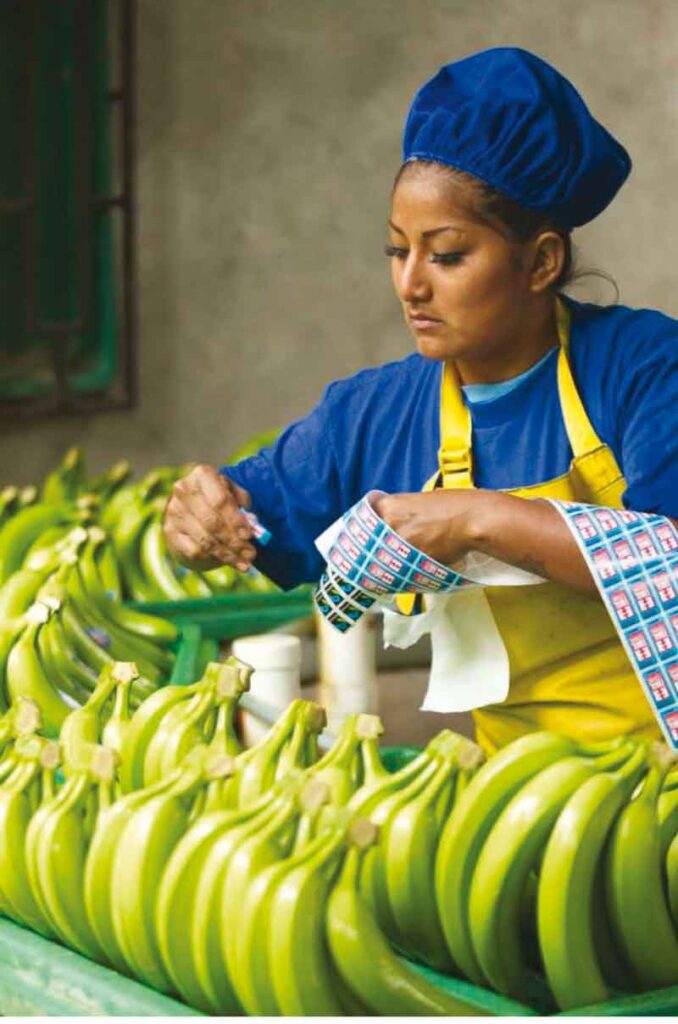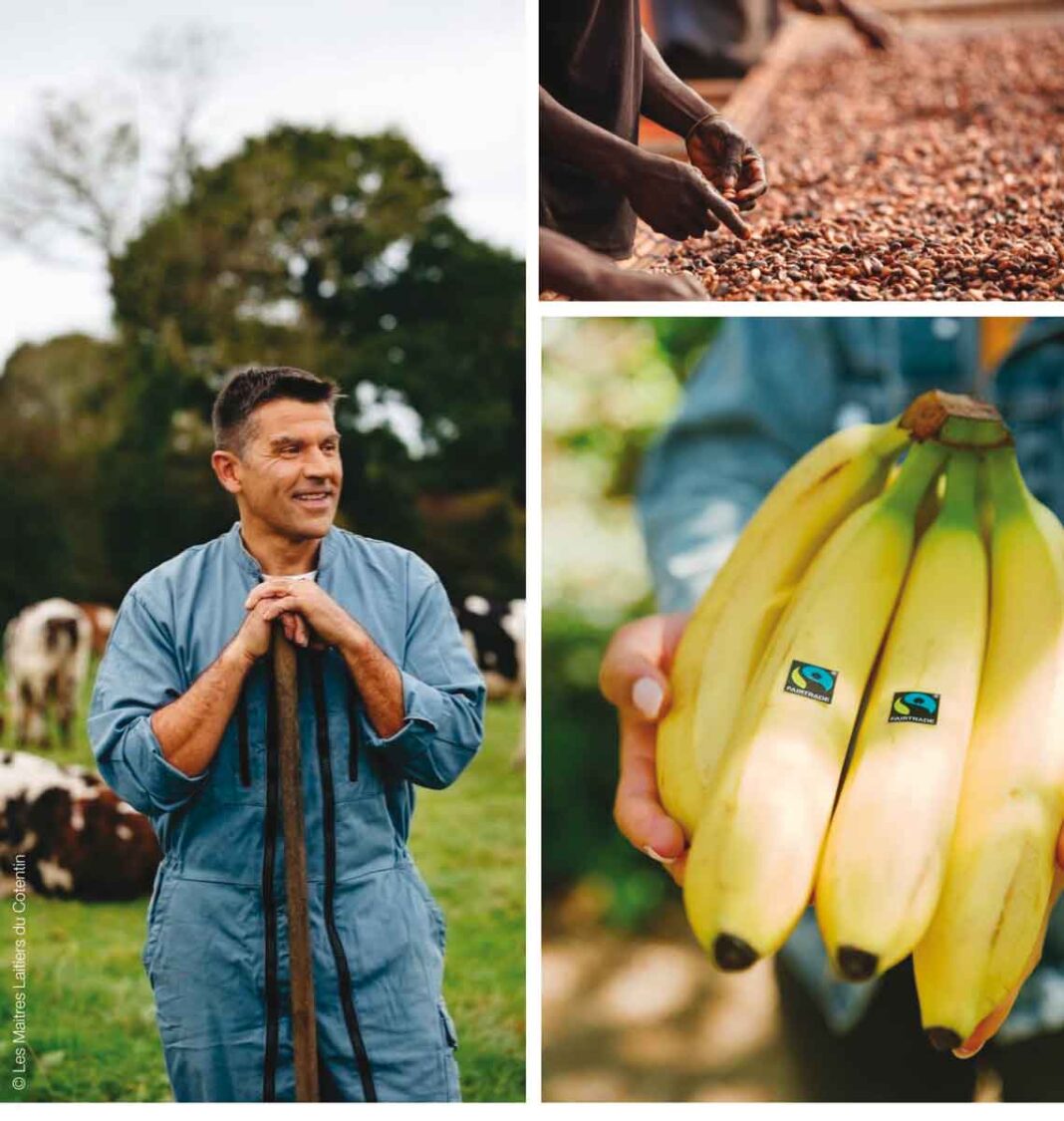Offered in 2021, the new fair trade labeling of the NGO Max Havelaar France for the French wheat and milk sectors has found its first partners and is launching its first products mixing ingredients from the South (vanilla, sucre) one you North (Cotentin milk). The new method sets a guaranteed fair price territorialized in France.
In addition to the guaranteed price, the Fairtrade/Max Haavelar development bonus paid to producers should help in France to fight against agricultural decline, social distress, or will be used to invest in the ecological transition. These first “French origin” products embody the objective of offering a fair price to all. Let us remember that, according to INSEE, 26% of farmers in France lived below the poverty line in 2019, in a context where the Egalim 2 law aims to protect them. “Because in our everyday products milk and vanilla coexist, wheat and chocolate chips, the approach will therefore benefit all farmers, Here and there. This is a new stage, and not the least, for certified responsible consumption, local and equitable” welcomes Max Haavelar in a press release. This launch comes in a favorable context for the fair trade player, with exceptional growth of Max Havelaar products in 2021 (+ 21 %). After 12% in 2020, growth in sales of Fairtrade/Max Havelaar labeled products achieved, in 2021, 1,219 million euros of products sold by 389 companies involved (turnover for all products and all distribution channels). An exceptional year driven by coffee consumed away from home (reopening of restaurants and cafeterias), banana and chocolate, which account for 80% of total turnover. Cotton and roses are also experiencing strong growth. While in the first half of the year online shopping and home consumption (ice progression) carried the growth, it is out-of-home and the new ranges of distribution brands that are driving it in the second quarter.
French products under fair trade label
The new specifications adapted to French fair trade for the wheat and milk sectors in 2021 allow the release of the first mixed products with certified ingredients in the South and the North, in partnership with French cooperatives and farmers. This new fair trade certification proposed by Max Havelaar France involves all players in the sector right through to the consumer. The method – unpublished – for setting the guaranteed fair price in France takes into account differences in territory and soil yield and, beyond a remunerative price, a quantified income objective for the farmer. “The approach based on territorial fragility and the eligibility of young installations will contribute to the maintenance of agricultural activity in declining territories.. The eligibility of farms converting to organic and the traditional premium specific to fair trade will support farmers towards more sustainable agriculture” declares Blaise Desbordes, Managing Director of Max Havelaar France.
An additional lever for Les Maîtres Laitiers du Cotentin
Founded in 1985, this agricultural cooperative processes in its Sottevast factories, Valognes and Méautis, for Campagne de France brands, Valco, Trappe de Bricquebec, Dairy Masters. It involves 1,100 producers and 680 farms. First actor to obtain fair trade certification Max Havelaar France, The Maîtres Laitiers du Cotentin have decided to develop their range of Campagne de France fresh cheeses, with two first products and other references to come. “Our cooperative has always supported its producers to add value to their milk, notably via the segmentation deployed since 2017 : AOP Butter and cream from Isigny, AOP Camembert, organic milk, pasture milk and non-GMO feed, low carbon dairy farms. Fairtrade/Max Havelaar certification is a complementary lever to highlight and better promote the commitment of producers to approaches beneficial to their territories and consumers.. We hope to develop this very natural partnership between the Maîtres Laitiers du Cotentin cooperative and Max Havelaar, whose major values are fairness and solidarity,” explains Guillaume Fortin., general director of Maîtres Laitiers du Cotentin. “With the combination of fair trade sugar and vanilla, everyone is there. The expectations of a farmer, whether in Madagascar or Normandy, are absolutely the same : live with dignity from your profession and be proud of your product” judge Noël Datin, dairy farmer, vice president of the cooperative.
The pandemic
energizes the local and the equitable
The proof in numbers : 63% of French people are interested in purchasing local “fair trade” products.

Sources : The Max Havelaar France barometer of the food transition (November 2021), Fair Trade Consumer Knowledge 2021 (GlobeScan, May 2021).












